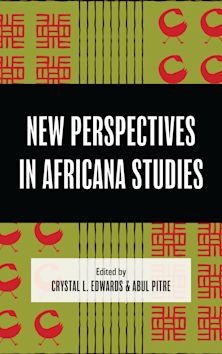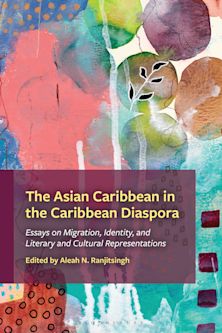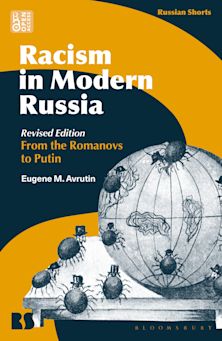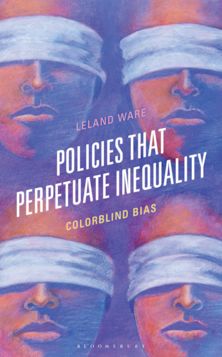- Home
- ACADEMIC
- Politics & International Relations
- Race and Ethnicity
- Afro and Indigenous Intersectionality in America as Nomen
Afro and Indigenous Intersectionality in America as Nomen
Intersectionally Black
Afro and Indigenous Intersectionality in America as Nomen
Intersectionally Black
This product is usually dispatched within 1 week
- Delivery and returns info
-
Free US delivery on orders $35 or over
You must sign in to add this item to your wishlist. Please sign in or create an account
Description
Afro and Indigenous Intersectionality in America as Nomen broadens the historical narrative of Indigenous, Autochthonous, and First World people who have been classified historically as Negro, Black, Colored, Afro, and African American. By addressing the ways in which the singular narrative of "slavery" codifies identity, this work moves beyond binary racial classifications and proposes the possibility of utilizing holistic historical narratives to foster group and personal identity.
Table of Contents
Chapter Two: The Imbedded Narrative
Chapter Three: So Much Moor, and More Than a Slave
Chapter Four: More Than a Narrative
Epilogue: The Intersectionality of Blackness
Product details
| Published | Mar 13 2023 |
|---|---|
| Format | Hardback |
| Edition | 1st |
| Extent | 182 |
| ISBN | 9781666919578 |
| Imprint | Lexington Books |
| Illustrations | 1 b/w illustration |
| Dimensions | 9 x 6 inches |
| Series | The Black Atlantic Cultural Series: Revisioning Artistic, Historical, Literary, Psychological, and Sociological Perspectives |
| Publisher | Bloomsbury Publishing |
About the contributors
Reviews
-
Who are you and are you really who you think you are? Dr. Miles helps the reader to understand these questions for people of African descent. He provides thorough research on the true identity of the subjugated captives who were dispersed to foreign lands. In his groundbreaking analysis, he provides you with so much 'Moor' to the discourse on the topic of identity for those who were already here as well as the individuals who were forcibly brought to the Americas.
T. Owens Moore, Clark Atlanta University
-
By offering insightful evidence for a time period that is generally viewed through the lens of enslavement and the binary of enslaved or free, Larry Miles enriches the historical narrative of the Black experience in the Americas before the 20th century and expands academic discourse that intersects Blackness, migration, and exploration.
Ebony Gibson, Georgia Gwinnett College
-
With detailed analysis grounded in extensive historical research, Larry Miles writes a startling and convincing counternarrative to the history of Black people’s racial history.
Georgene Bess Montgomery, Clark Atlanta University

ONLINE RESOURCES
Bloomsbury Collections
This book is available on Bloomsbury Collections where your library has access.

































